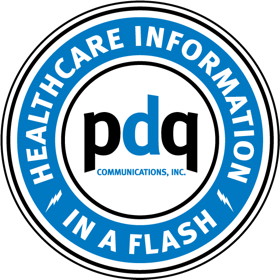Marketing to healthcare providers is a long-term, cumulative effort that requires time, dedication,...
Successful B2B healthcare marketing campaigns spread brand awareness, drive leads, and grow revenue by targeting healthcare professionals (HCPs) and organizational representatives with relevant, timely product information.
The success of your campaigns may depend significantly on their duration, as the length of time they run can greatly influence their reach and impact.
With that in mind, how long should an HCP marketing campaign continue to achieve desired results?
What Factors Should Determine the Duration of Your Campaigns?
The length of time your marketing campaigns should run will depend on a number of important considerations, including the specific goals you’ve set, size of your target audience, your budget, and resources.
Campaign goals need to be achieved on a set timeline—helping you plan the right approach.
Objectives should adhere to the SMART methodology—specific, measurable, attainable, relevant, and timely—an effective framework enabling you to plan your strategy, evaluate your progress, and make adjustments as needed.
Form your overarching objectives in this way: I want my campaigns to attract 200 subscribers within six months. Setting specific, realistic goals that can be tracked and measured along the way to gauge progress, and acted upon within a given timeframe will help you direct your efforts more efficiently and improve your results in the long term.
Some campaigns are built around time-bound factors and offers such as seasonal promotions and deals with set expiration dates, which are designed to appeal to your consumer’s sense of urgency. This could influence how early and for how long you choose to run a campaign to ensure its effectiveness.
The size of your target audience can also contribute to the length and complexity of your marketing campaigns. If large, for example, your campaign may need to be longer and more complex to ensure all ideal recipients are reached and digest your messaging. By contrast, if smaller, your campaigns can be shorter and simpler.
Your budget and available resources including your team size also dictate what types of campaigns can be created, how large of an audience you can reach, the frequency of campaign deployments, and ultimately, duration. B2B healthcare marketing campaigns can be expensive if they require complex strategies, multiple channels, and more resources.
While a larger budget enables you to deploy more creative campaign formats and complex messaging that you can afford to run longer, a smaller budget dictates simpler, shorter campaigns. Campaigns that are too short or too long can be ineffective and waste valuable time and resources, so finding the right deployment duration and cadence is crucial.
Ultimately, the goal is enough time to reach the greatest amount of your target audience to effectively generate leads. This may take several redeployments and require you to track progress while testing and adjusting your approach, for maximum effect.
How Long Should Your Individual Campaigns Last?
Generally, campaigns can run anywhere from a few weeks to several months to a year or more, however, it is important to ensure they’re regularly monitored and evaluated to maximize their success.
While the length of time for a campaign to reach its intended goal may vary, according to Google partner firm AdEdge Digital Marketing, it takes about 45 days for a consumer to retain and recall information, so you should plan to continue your efforts at least that long to truly be effective.
The channels you use to connect with your audience also play roles in the length of your campaigns. The most effective marketing channels for HCP audiences are direct mail and email, which both provide convenient and highly personalized experiences.
Direct Mail Campaigns
While there is no established ideal direct mail campaign frequency, according to direct mail marketer Mailing.com, consumers must be able to view your messaging between three and 20 times before they pay attention and take action, and survey data from the trade group Direct Marketing Association indicates 21 days as the optimum length of time between your deployments.
According to digital and direct mail agency McCarthy & King Marketing, direct mail campaigns can take between five to 10 weeks to plan, produce, and deploy, and the length of campaign’s completion can be even longer. You should measure your campaign progress at regular intervals to see if your content, deployment or timeline requires adjustment to ensure desired results.
For example, if you're observing a lower-than-expected return on investment (ROI) halfway through a campaign, that could be a signal to either tweak your approach, change your timeline or reevaluate your overall campaign strategy.
Email Campaigns
The success of email campaigns largely depends on your ideal goals and associated messaging. According to AdEdge Digital Marketing, it takes about 90 days to build momentum around a digital marketing campaign. One of the best campaigns for leveraging your email to effectively lead prospects through the buyer’s journey is trigger marketing.
This highly customizable and automated approach can be activated when your audience takes a specific action—causing a consequential message or call to action. This can be prompted by a variety of actions or responses, including filling out a form, opening (or failing to open) an email, visiting a specific page on your website, and more. Because these campaigns are triggered automatically, they can be customized to reach the right HCP prospects at the right time to encourage conversions based on specific behaviors.
Generally speaking, email campaigns should run for at least three months to ensure the content has time to resonate with your busy audience.e. However, this can be longer, depending on specific objectives, and the results of your campaign monitoring.
While individually, direct mail and email campaigns can be most effective in connecting impactfully with HCP prospects, taking a multi-channel approach will help not only reach a wider audience, but reinforce the influence of your messaging.
All in all, it’s recommended an individual HCP marketing campaign runs for at least three to six months to ensure its messaging is seen and resonates with the target audience. This also allows adequate time for monitoring and adjustments.
Work With PDQ Communications to Lead Your HCP Marketing Campaigns to Success
Working with healthcare marketing partner PDQ Communications helps ensure you’re utilizing the most effective messaging and deployment strategies, reaching the best healthcare audience for your campaigns, and properly monitoring your progress to further improve your approach for the long term.








